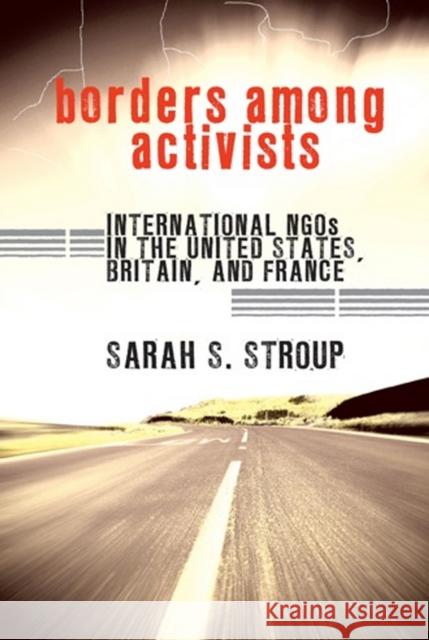Borders among Activists » książka
Borders among Activists
ISBN-13: 9780801450730 / Angielski / Twarda / 2012 / 208 str.
In Borders among Activists, Sarah S. Stroup challenges the notion that political activism has gone beyond borders and created a global or transnational civil society. Instead, at the most globally active, purportedly cosmopolitan groups in the world international nongovernmental organizations (INGOs) organizational practices are deeply tied to national environments, creating great diversity in the way these groups organize themselves, engage in advocacy, and deliver services.Stroup offers detailed profiles of these "varieties of activism" in the United States, Britain, and France. These three countries are the most popular bases for INGOs, but each provides a very different environment for charitable organizations due to differences in legal regulations, political opportunities, resources, and patterns of social networks. Stroup's comparisons of leading American, British, and French INGOs Care, Oxfam, Medecins sans Frontieres, Human Rights Watch, Amnesty International, and FIDH reveal strong national patterns in INGO practices, including advocacy, fund-raising, and professionalization. These differences are quite pronounced among INGOs in the humanitarian relief sector, and are observable, though less marked, among human rights INGOs.Stroup finds that national origin helps account for variation in the "transnational advocacy networks" that have received so much attention in international relations. For practitioners, national origin offers an alternative explanation for the frequently lamented failures of INGOs in the field: INGOs are not inherently dysfunctional, but instead remain disconnected because of their strong roots in very different national environments."











